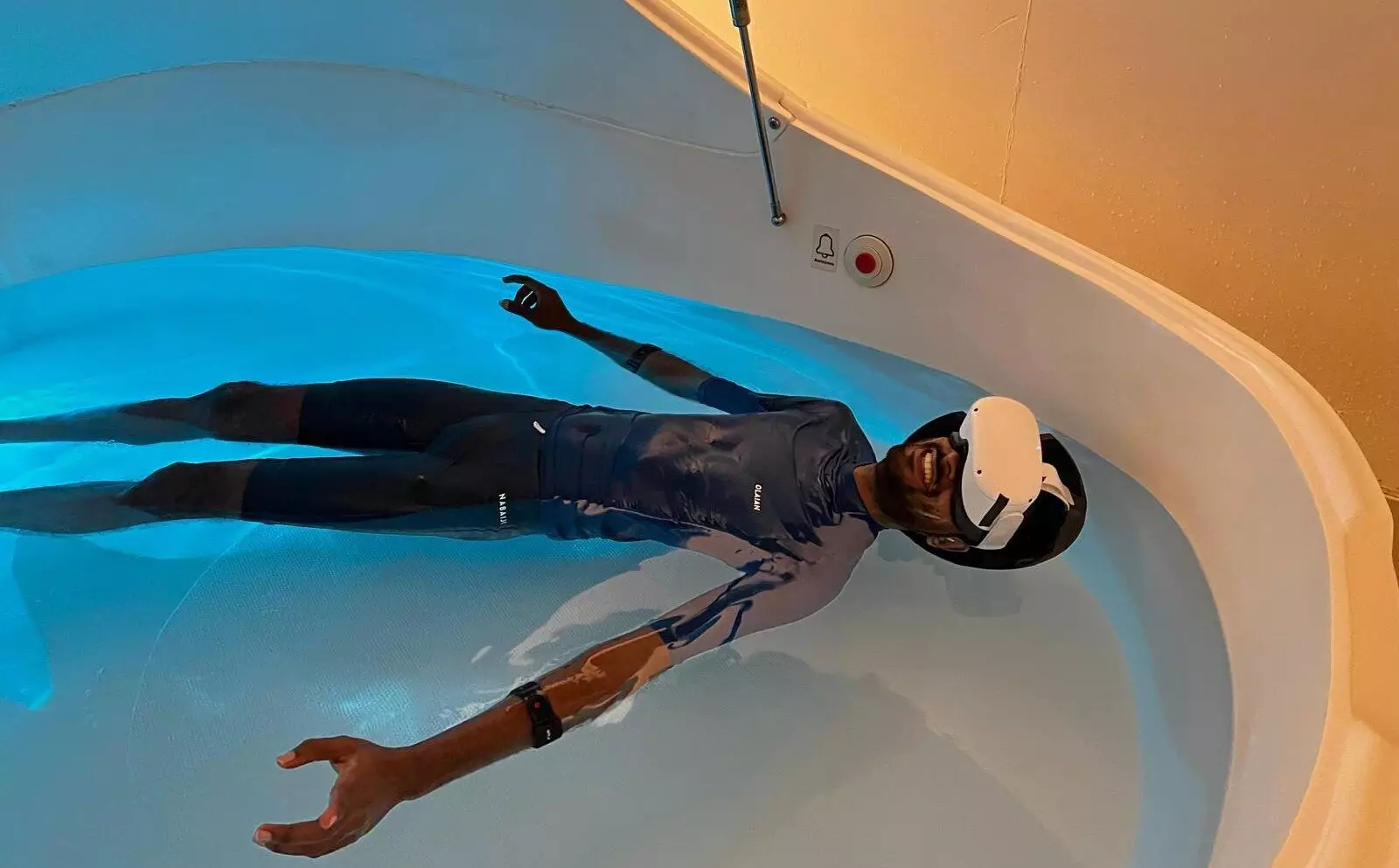Aquaphobia, or the intense fear of water, is a debilitating condition that can severely restrict an individual’s ability to engage in aquatic activities. As society increasingly recognizes the importance of mental health, the need for effective interventions for phobias like aquaphobia has surged. Recognizing this issue, researchers at Monash University’s Faculty of Information Technology’s Exertion Games Lab have pioneered an innovative solution: an extended reality (XR) system that creatively utilizes floatation tanks to assist individuals in overcoming their fear of water.
The core of this groundbreaking research integrates water-based virtual reality (VR) with the calming environment of a floatation tank. This unique blend aims to construct an immersive experience tailored specifically for those grappling with aquaphobia. Participants float in a tranquil tank as a VR headset immerses them in a thoughtfully designed auditory and visual landscape that conjures a sense of serenity, aiming to diminish feelings of anxiety associated with water.
The innovative system not only offers an engaging digital environment but also employs biometric feedback mechanisms to create an interactive experience conducive to relaxation and stress reduction. Key physiological indicators such as heart rate and breathing are monitored, allowing real-time feedback that enhances the user experience. This data-driven approach not only serves to enrich the immersive component of the XR system but also grants participants an increased sense of control, as they can see how their physiological state interacts with the virtual environment.
One of the striking features of the XR experience is the presence of a virtual guide known as a “water spirit.” This character acts as a comforting presence, frequently reassuring participants that they are safe and encouraging them to embrace the sensation of being in water. The “water spirit” guides participants through a carefully designed progression of experiences, reminiscent of exposure therapy. This structured journey is essential in helping individuals gradually confront and overcome their fear, making the experience not only entertaining but also therapeutic.
As participants advance through the XR experience, they are exposed to increasingly interactive scenarios, including navigating through simulated cyclones while learning to manage their heart rate to mitigate adverse effects. The water spirit’s role in this dynamic is critical, as it encourages participants to reframe how they perceive and respond to their fears. By transforming intimidating situations into rewarding achievements, the XR system fosters a sense of accomplishment and strengthens emotional resilience.
The study’s findings, drawn from a controlled experiment with twelve participants who reported a fear of water, indicate that interaction with the XR system significantly reduced anxiety levels compared to sessions without technology. Utilizing heart rate variability as a key measure, researchers found tangible evidence that the XR approach facilitated a calmer state and a more optimistic engagement with water. This outcome underscores the potential of interactive, technology-driven methodologies in psychological intervention, particularly for phobias.
Maria Montoya, the lead researcher, emphasizes that aquaphobia often prevents individuals from enjoying recreational water activities, which can lead to a vicious cycle of fear and avoidance. By harnessing the power of interactive technologies, the researchers envision a way to make therapeutic experiences more enjoyable and accessible. Their research aligns with broader trends in mental health treatment—moving towards more engaging and supportive techniques.
Monash University’s pioneering XR system represents a significant advancement in the treatment of aquaphobia. By combining the realms of technology and therapy, researchers are crafting experiences that not only entertain but also heal. As the study demonstrates, innovative systems like the XR platform can play a pivotal role in helping individuals reclaim their lives from the constraints of phobias, opening new avenues for participation in aquatic environments. As future research continues to explore this intersection of technology and mental health, there is great potential for developing even more tailored interventions, significantly improving quality of life for those affected by aquaphobia and similar fears.

